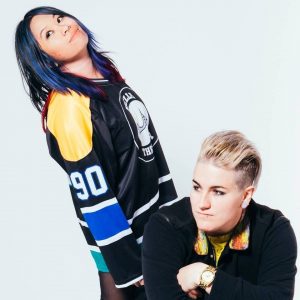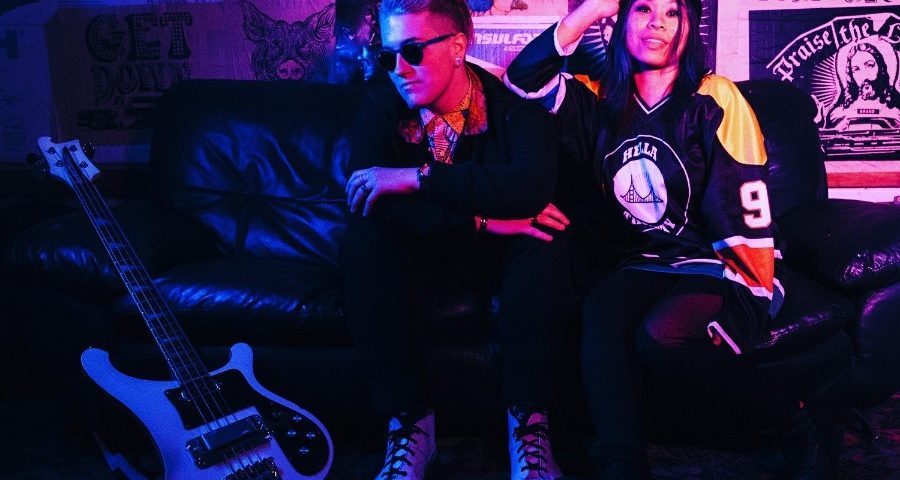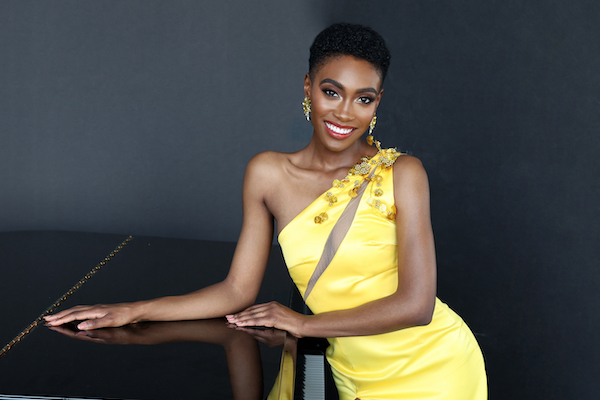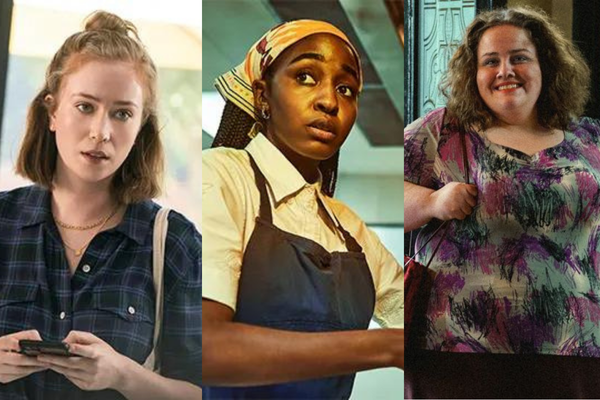
Why Your Periods Might Be a Pain
March 7, 2018
Queer Women in History: Susan Hester
March 12, 2018Kristen Voorhees from WFSU DC here to bring you another womxn band fucking shit up at our upcoming festival on March 24! Not only is WASI one of our few out-of-towners coming into the District just for WFSU DC, but they are also part of the founding mothers of the original, Los Angeles–based Woxmn Fuck Shit Up Fest! This is how it all started…
Back in November, I received an email from Merilou Salazar, half of WASI. She had heard of The QREW’s work with other artists, including Madame Gandhi , and was interested in collaborating with us in early 2018. We got to talking about each other’s endeavors, and Womxn Fuck Shit Up Fest inevitably entered the conversation. We both agreed it would be amazing to bring the WFSU concept over to the East Coast. From there, Salazar introduced me to the rest of the Los Angeles team, and we got to work.
Not only did we get this fest started with the help of our Los Angeles friends, but we are able to bring them to the fest to perform AND represent the original crew! Even though we’ve totally listened to all their music and watched all their music videos (check out Floor Talk), we are so stoked to watch these womxn kick fucking shit up live!
Names: Merilou Salazar & Jessie Meehan
Location: Los Angeles, California
Gender and orientation? F/lesbians
Pronouns: She/her
When and how did you first become involved in music?
Salazaar: Since before I was in school I was always drawn to music. No one in my family played anything, but I’d spend my days just sitting there listening to my stereo. I got into The Clash and The Cure at 12 years old—and I think that started my spiral into alternative/punk. My parents weren’t too supportive of me playing electric guitar, and I think the more I fell in love with it, the more they’d restrict my playing.
In high school, I was part of an after school group that was throwing an event and needed to book a band. I took that moment to raise my hand and sign my band up. Little did they know, I actually didn’t have a band! Just a guitar that I was teaching myself with.
So the next day I reached out to some friends and no one was down to do the gig—understandably so, as the show was in three weeks. Through this search of musicians I met Jessie—who had a bass but didn’t play it. We recruited a drummer/singer and another guitarist and wrote 30 minutes’ worth of teenage punk songs about cafeteria food and the color of our underwear. We were called the Midol Poppers.
Meehan: I grew up listening to India Arie, Blink-182, and My Chemical Romance to help cope with my depression. Kids would bully me in school because of my weight and my masculinity, so listening to music was my way of coping. Merilou reached out to me in the middle of physics class, and I’ve been playing music ever since.

Photo Courtesy of WASI
How is music attached to your gender identity? Did/does your identity play an integral part in the development of your music?
Meehan: When I was a teenager, I went through both a male and a female puberty because of a hormonal disorder called PCOS. Because of this, my voice dropped in eighth grade similar to how a guy’s voice drops around that time. I was so confused and depressed because the female inside of me was not what was showing on the outside, despite being born a cisgender female. I was extremely insecure and bullied a lot for this and it made me really shy. I share this because this time in my life was such a vulnerable hard time and by the time I found music and Merilou, I desperately needed that connection and safe space. Singing in a band was never something I thought of doing before Merilou hit me up, and it ended up being incredibly therapeutic and I believe saved my life. I learned to love and accept myself for who I am despite what the outside world says I should look or present. Having a deep voice became something I love about myself and I wouldn’t change it for anything.
Salazar: For me, I think being a woman plays a role in everything—including the music and songwriting. While I grew up listening to a lot of male artists, I could take that inspiration angst. In punk, it’s the riot grrrl angst of being louder and angrier. In our more mellow songs, the shy, introverted girl that’s scared of the world comes out.
Who or what is your inspiration and why?
Salazar: MIA is a huge inspiration. Her musical style, art, and activism inspire me. Also, just being around communities like Womxn Fuck Shit Up Fest, Girls Rock Camp, etc., where people come together and use art to inspire hope and empower voices.
Meehan: The mentality of Girls Rock Camp is definitely an inspiration for me. The idea that even if we can’t change everything and create a completely equal playing ground for women/queer folks and minorities in my generation, we can instill a confidence and belief in these young girls and have a hope for the next generation. It always starts with the youth.
Why are you playing at WFSU DC?
We are so excited to be part of WFSU DC and the new space it’s creating in the community. Being from Los Angeles and starting WFSU LA out here, I’ve seen the community it’s brought together, and to see this happen on the East Coast is inspiring.
How do you fuck shit up?
We fuck up the status quo. We work with communities that are doing something different and progressive—creating space that didn’t exist before. We technically write pop music but utilize our unique voices and punk upbringing to tell our stories. We do things our way and I think, being women, queer and a person of color, honing in on our authentic selves and bringing it to people’s ears is what we know to do.





